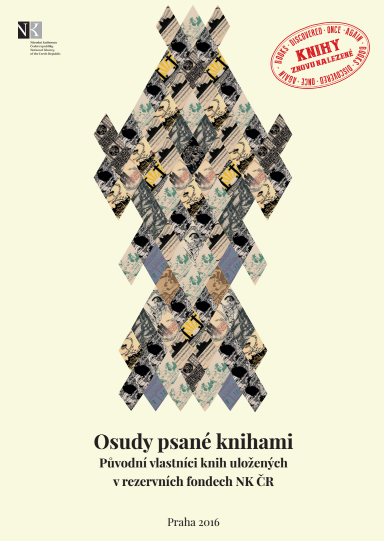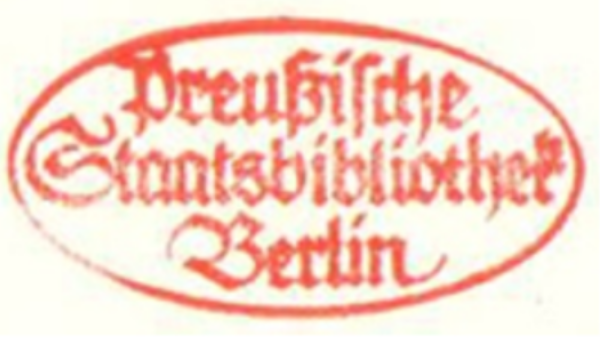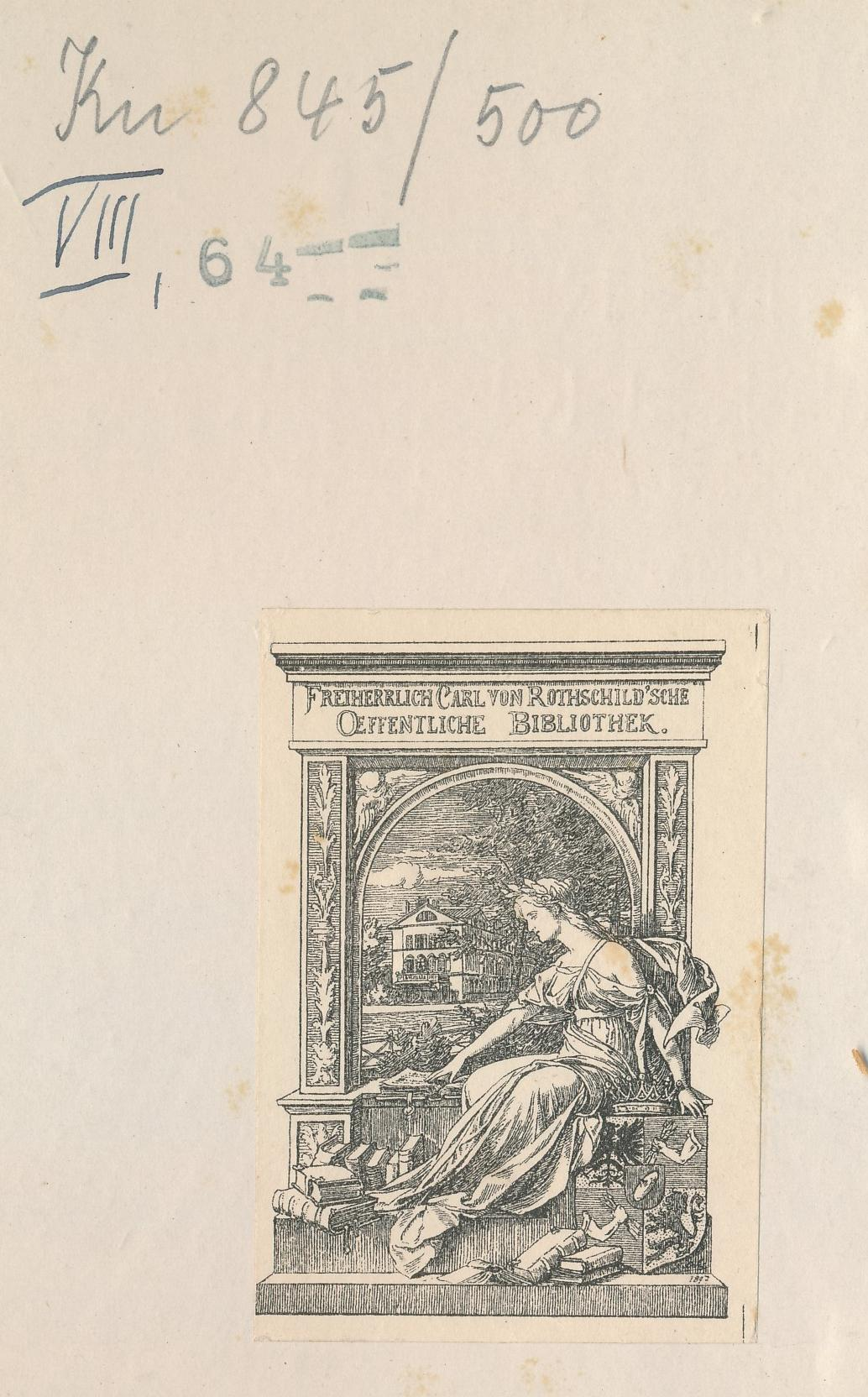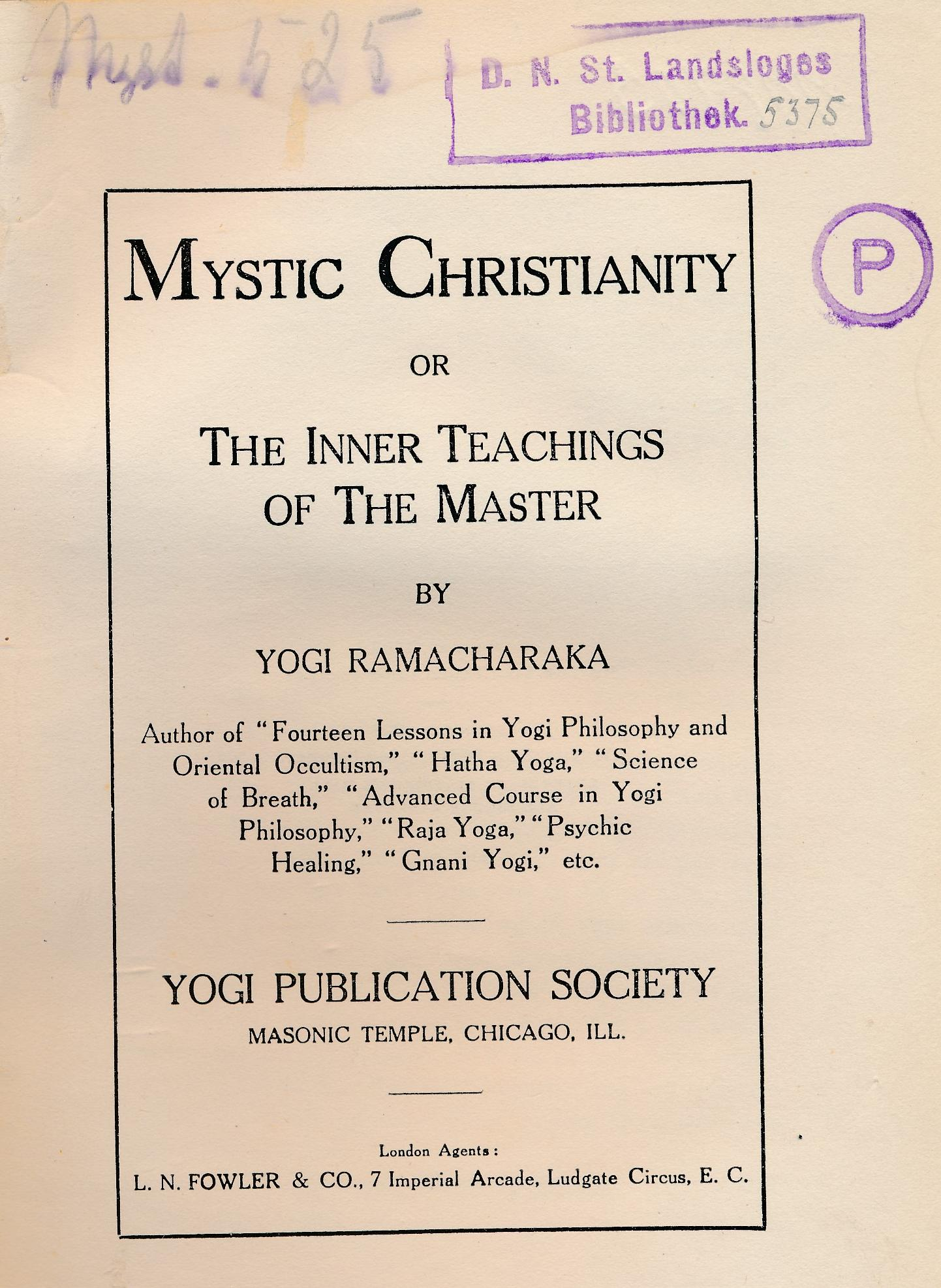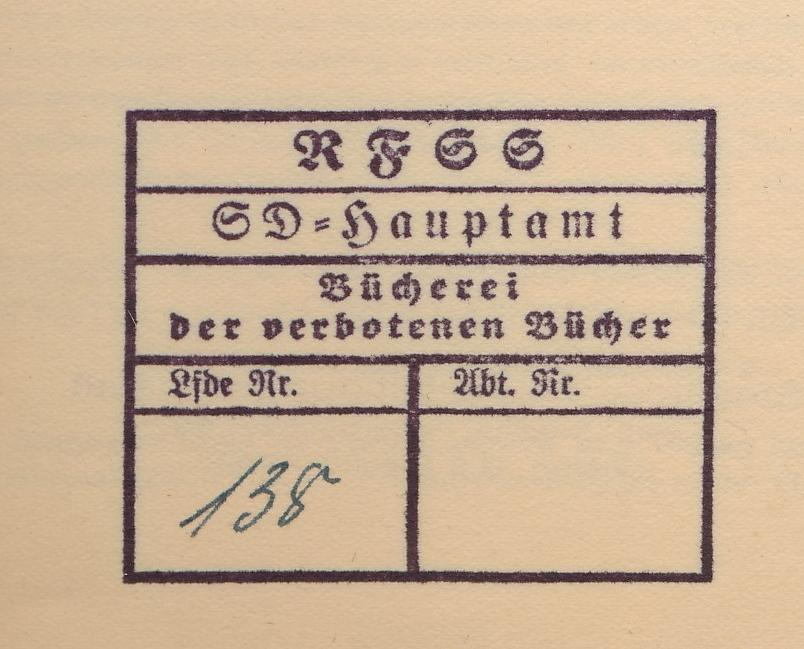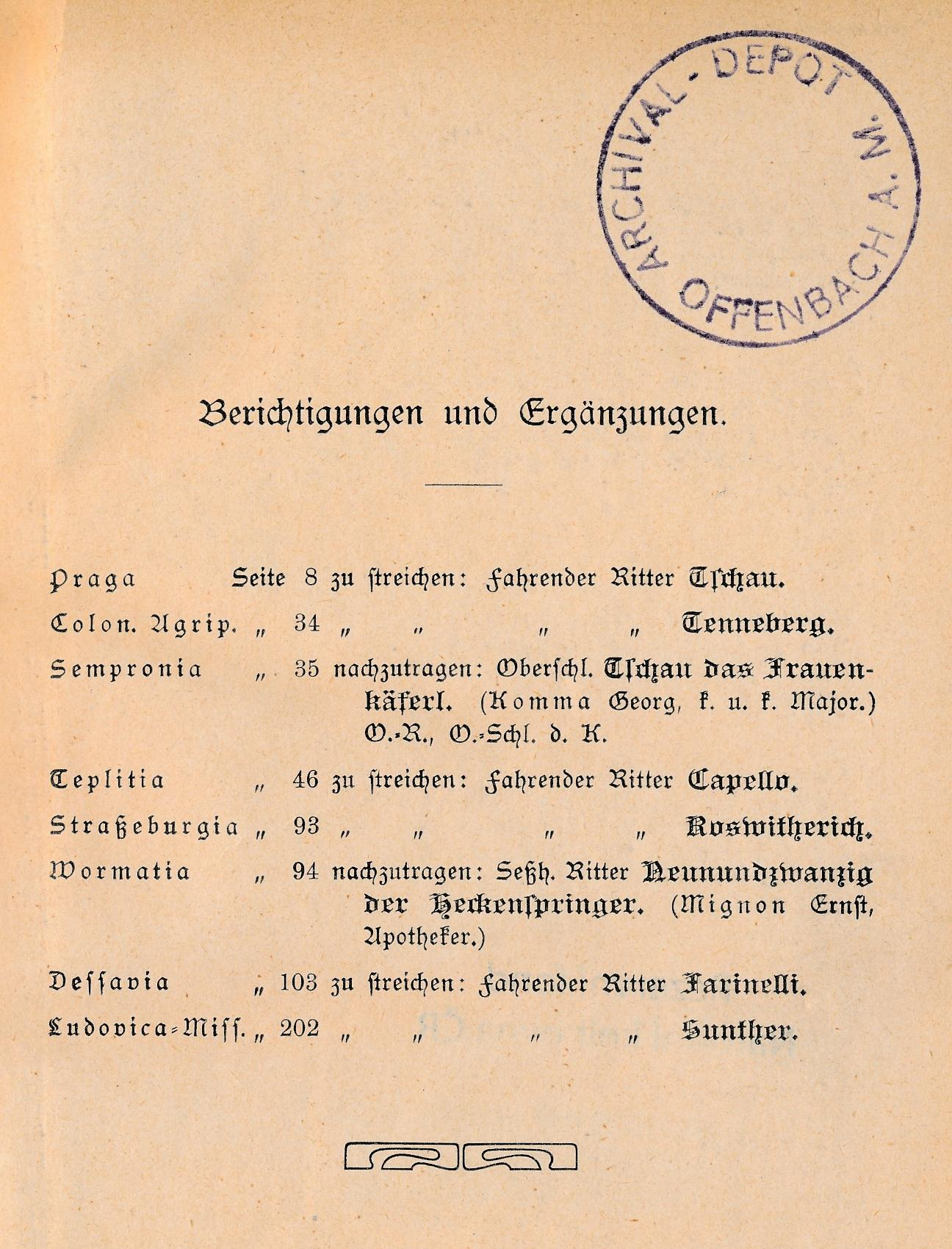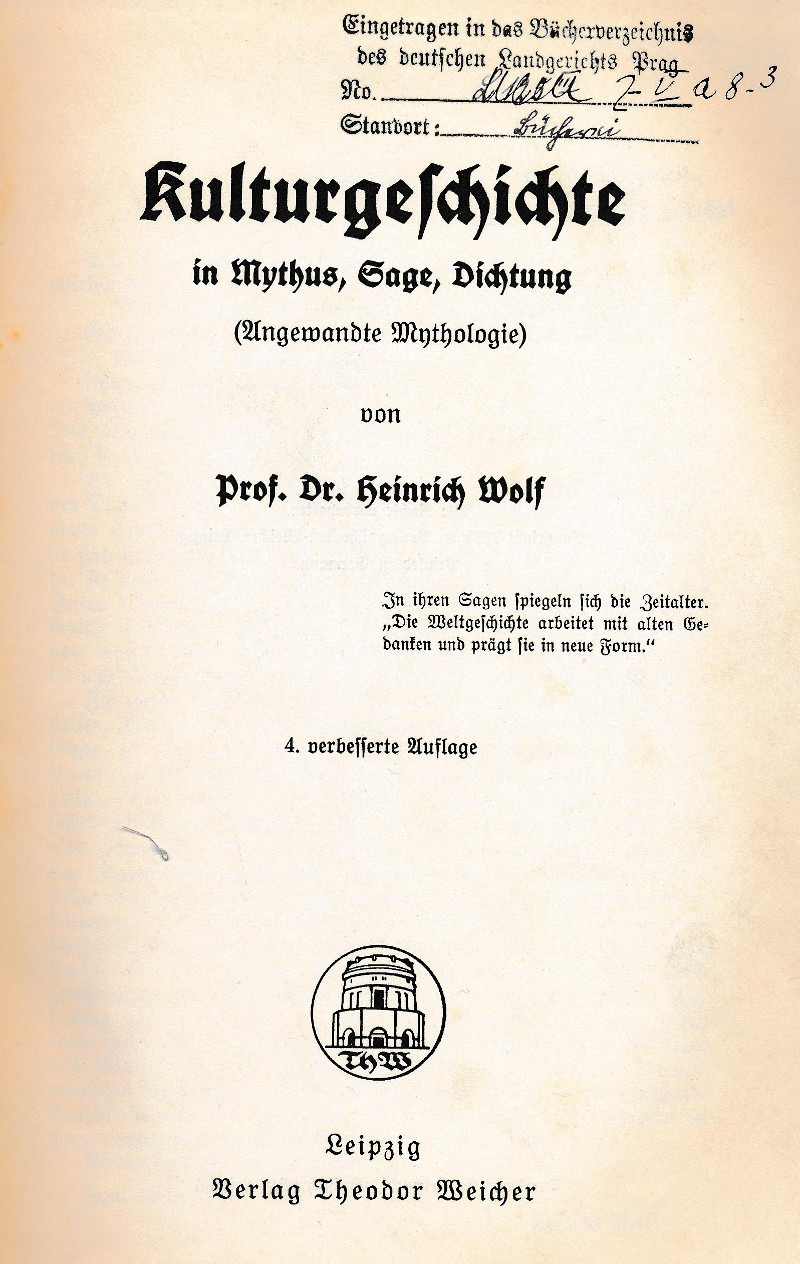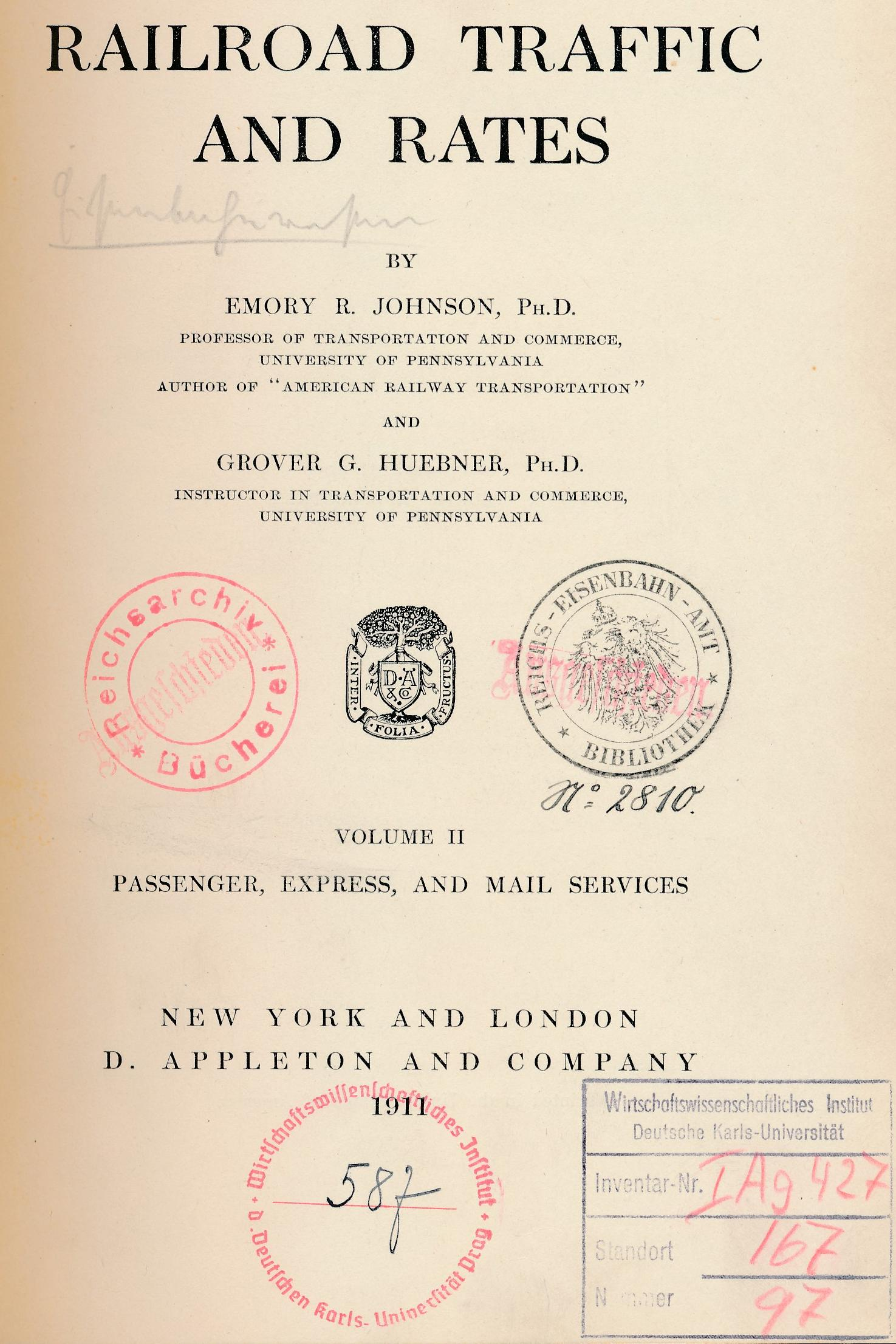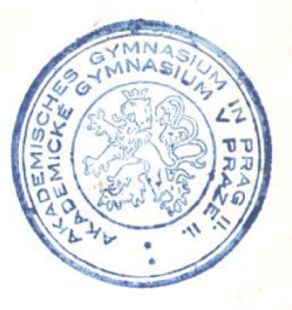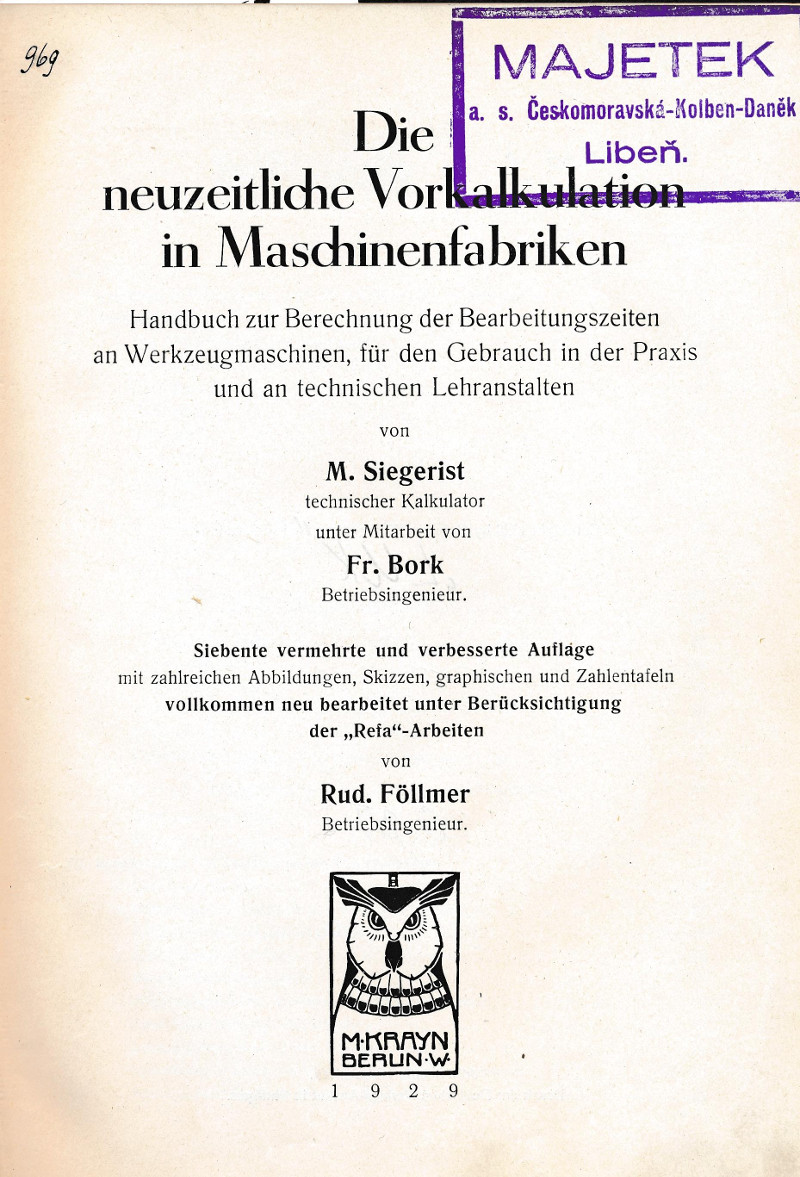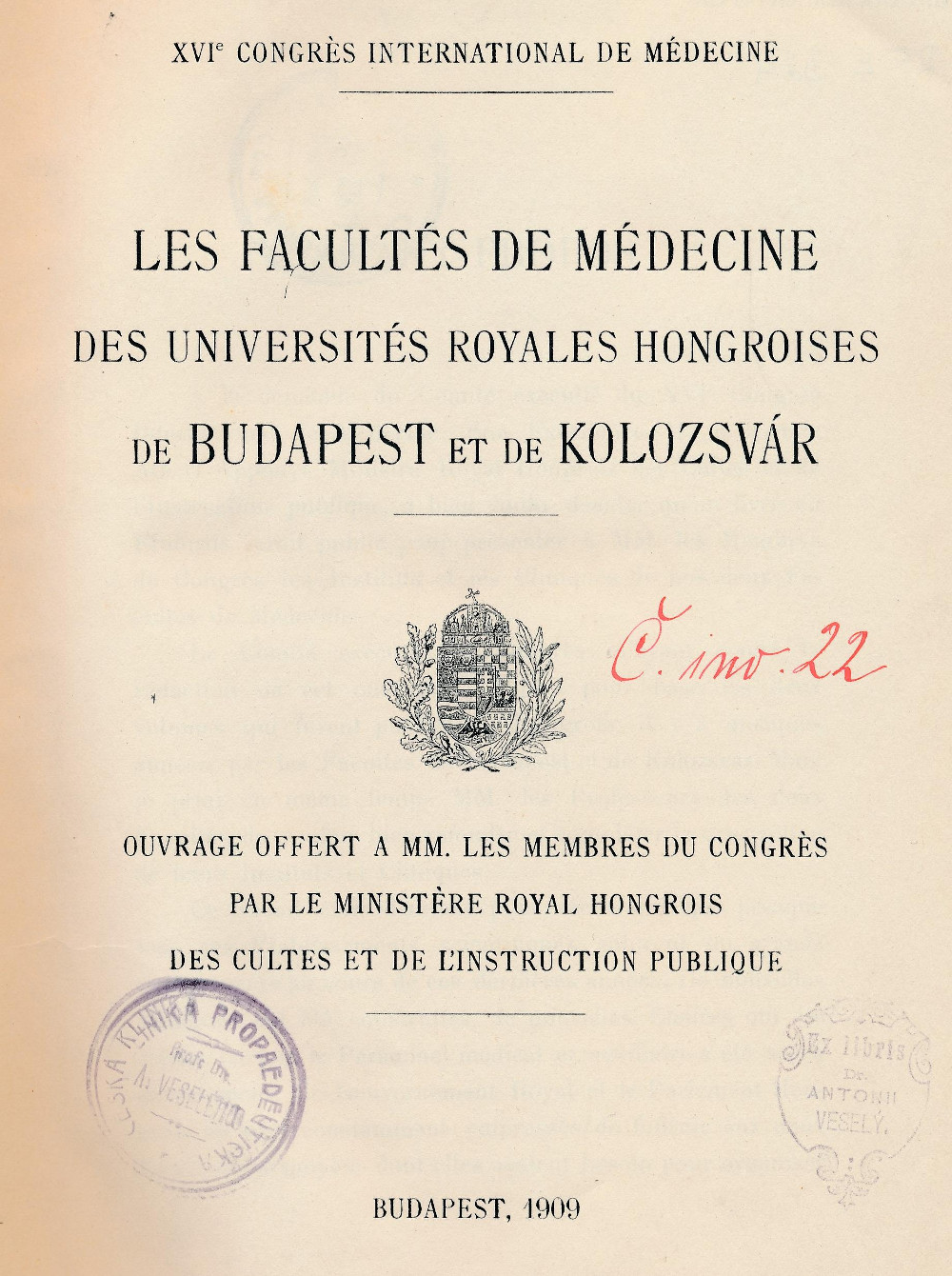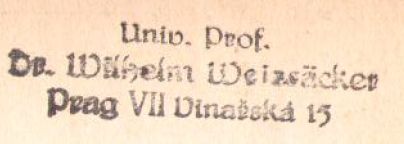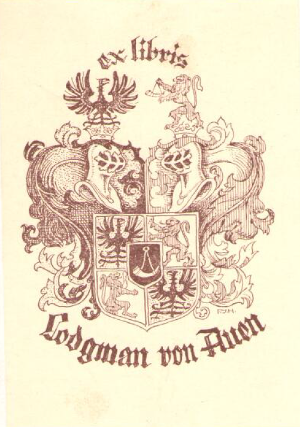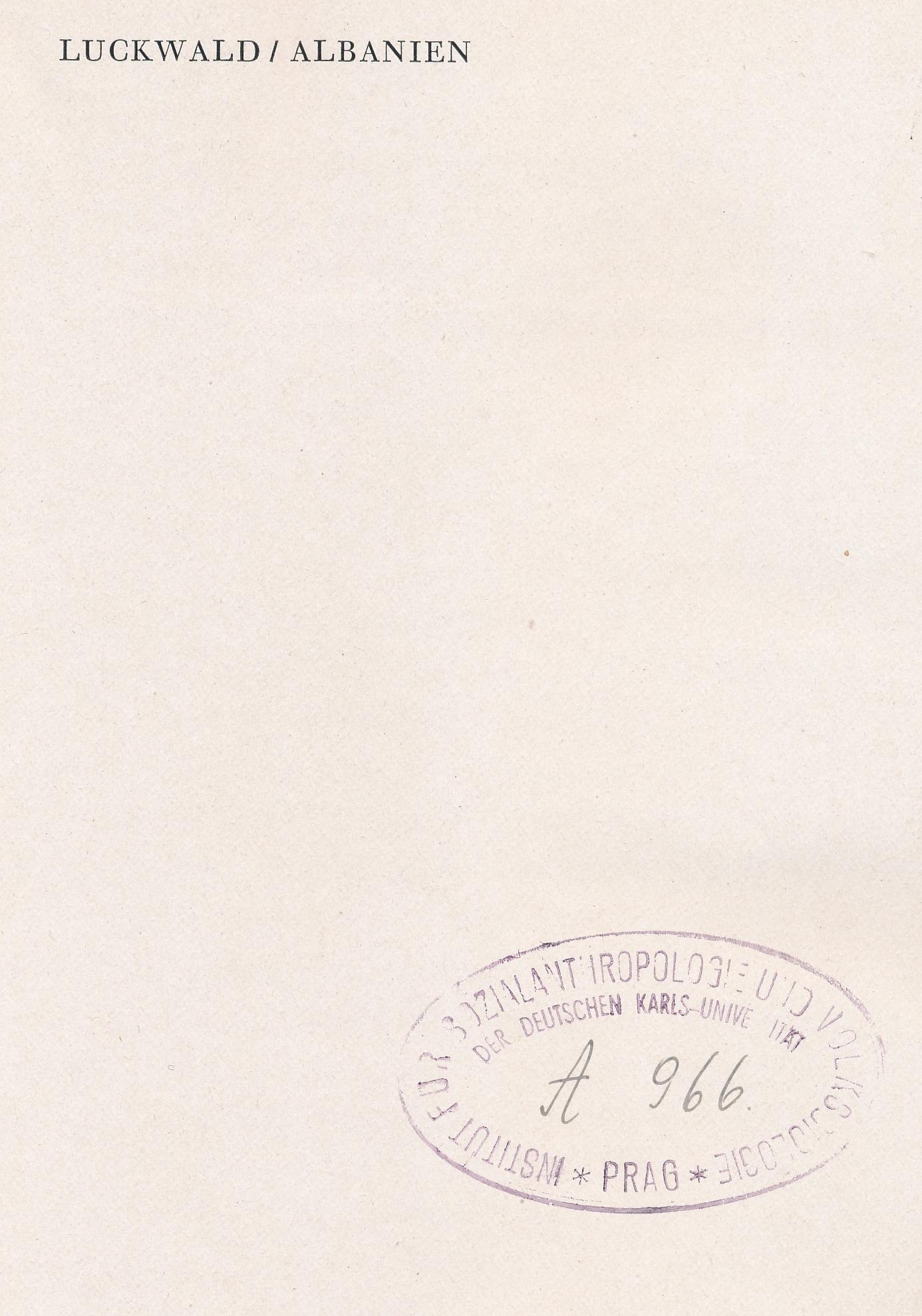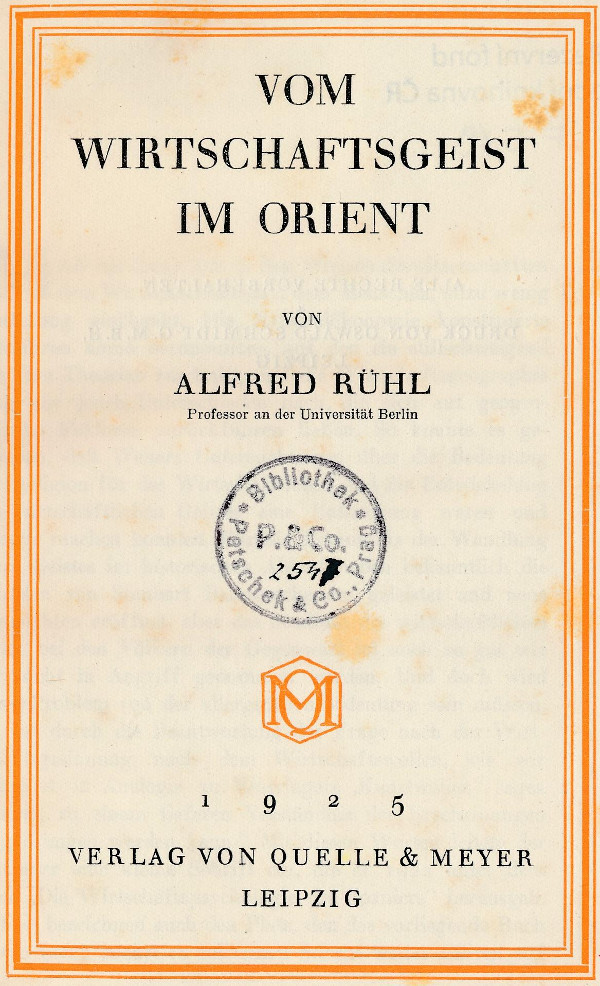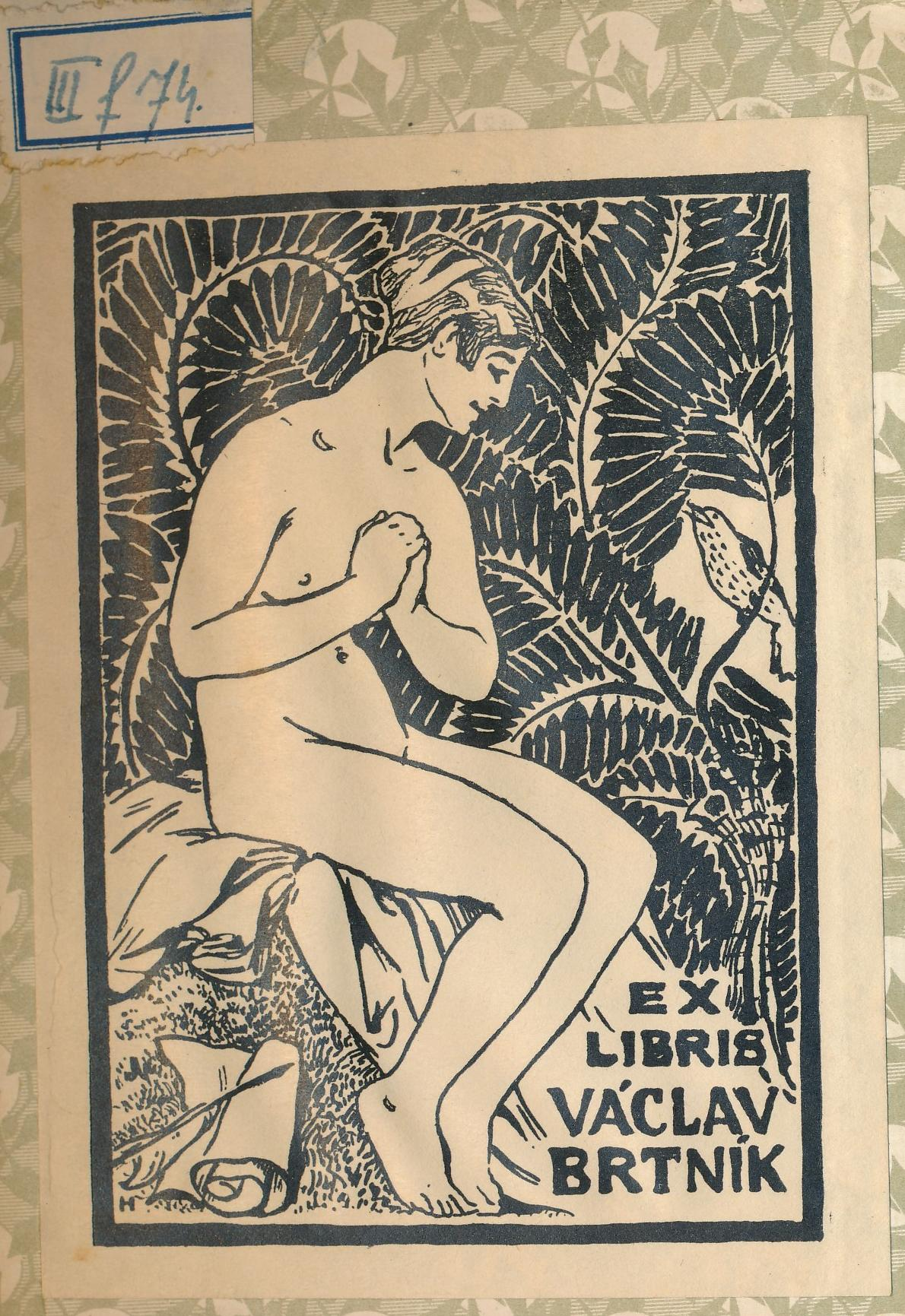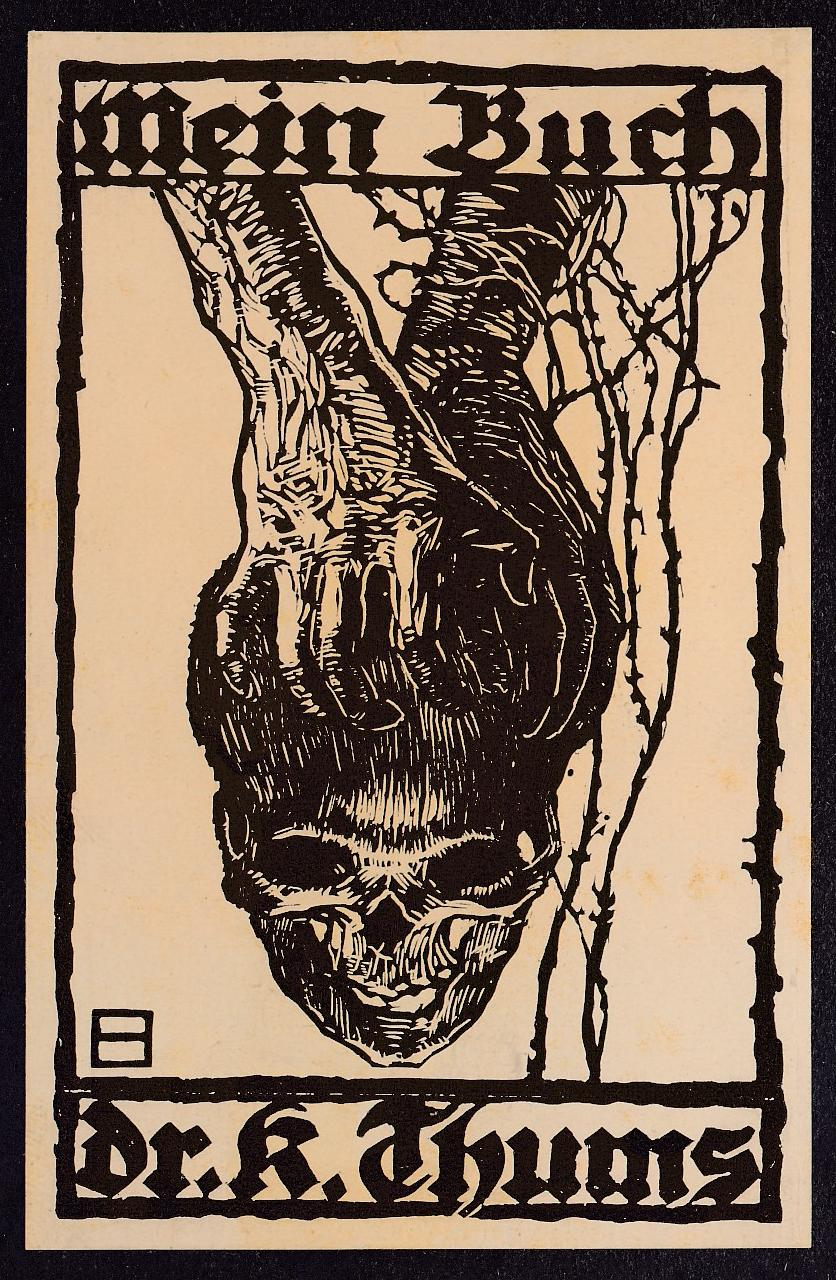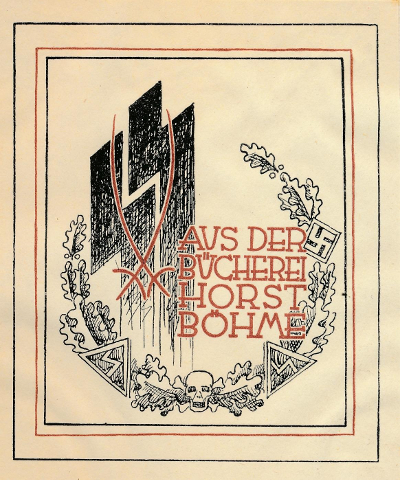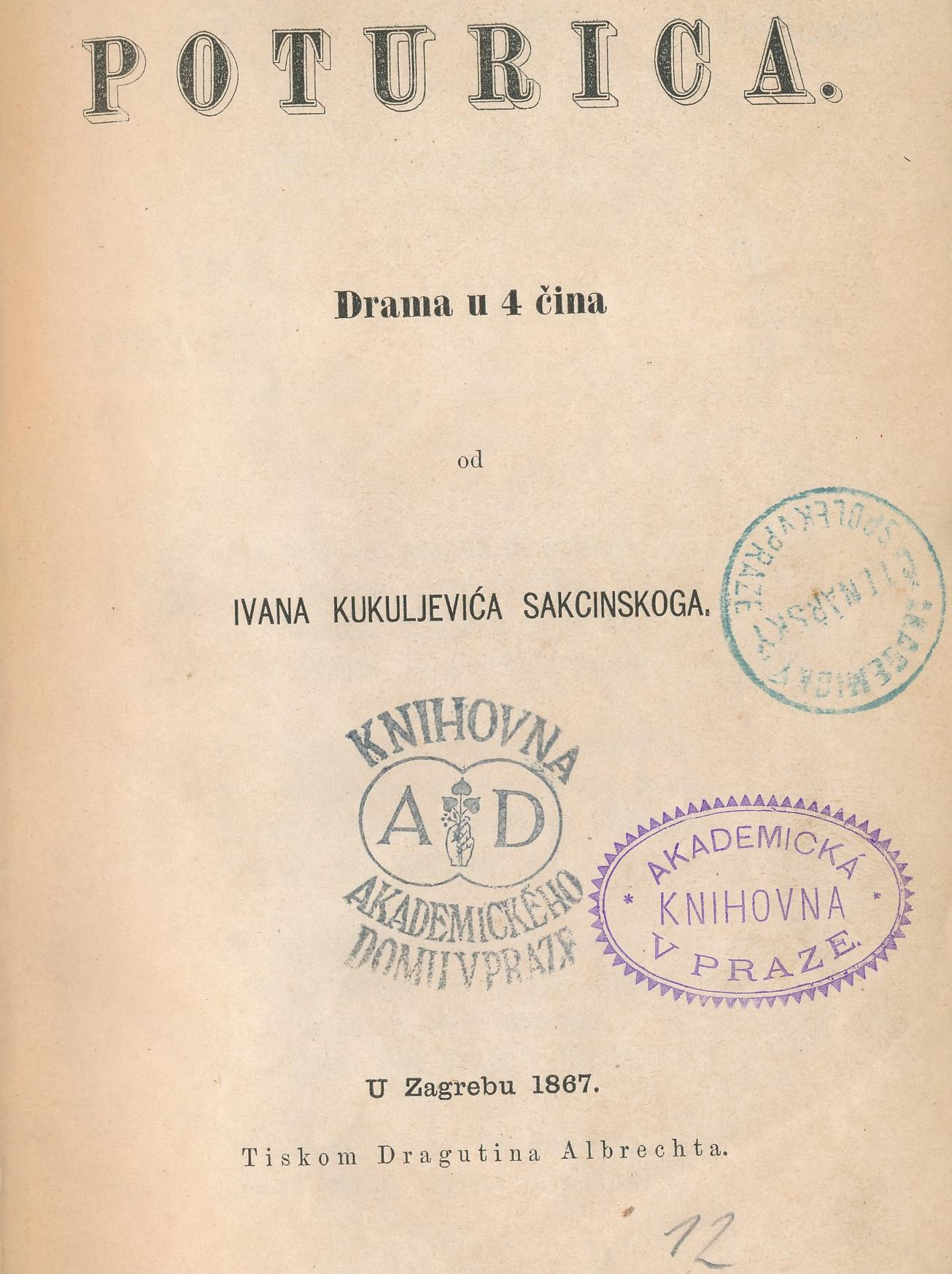The original holders of books
Who were the people who originally owned books which we catalogised? In what institutions books originally belonged to? From 2000 unique original holders we selected twenty, which we thoroughly explored. Here are published microstories of the private persons and important institutions of its time. The complete text, including footnotes will be published in the e-book since autumn 2016.
Published on 27 October 2016
A complete compilation on the original book owners published
Author: Nina Seyčková
A compilation entitled, "Fates Written by Books – Original Owners of Book Placed in the Reserve Collections of the National Library of the Czech Republic", contains the microstories of original owners. Unlike the continuously published microstories, the compilation available on the website also contains an extensive textual apparatus. The compilation was prepared and the introduction to it elaborated by Marcela Strouhalová, the project historian. It is available in Czech only and contains texts prepared by Czech experts.
Read morePublished on 26 September 2016
The Prussian State Library (Preußische Staatsbibliothek)
Author: Mirjam Kristensen
The largest library in Germany, the Royal Library, which was located in a building along Unter den Linden, was renamed during the Weimar Republic as the Prussian State Library. When the Nazis came to power, the library’s employees were replaced and people were hired that were faithful to the new board and members of the National-Socialist German Workers’ party (NSDA). Under the leadership of Hugo Andres Krüss, who had been the library’s director since 1925, the Prussian State Library became a national research library. This was in conflict with the German Library [Deutsche Bücherei] in Leipzig, which since 1931 had enjoyed the role of national library and published the German national bibliography annually. In 1935, it came to a point where the Reichsminister for education appointed the two libraries’ principal tasks. From then on, the Prussian State Library had, as its principal task, the cataloguing of all publications in languages other than German, a task Director Krüss did not view as an honourable one.
Read morePublished on 25 September 2016
Baron Carl von Rothschild's public library in Frankfurt
Author: Mirjam Kristensen
Carl Mayer von Rothschild (1788-1855) was born to a German-Jewish banking family and had four sons who travelled in Europe and ran the family’s banking activities. This prosperous family had several properties in Frankfurt, and in 1888 they opened a public library according to the model used by public libraries in England where anyone could borrow books for free. It was Carl von Rothschild’s grandchild, Hannah Louise von Rothschild, who ran the library.
Read morePublished on 24 September 2016
The Norwegian Masonic Grand Lodge
Author: Mirjam Kristensen
On the 8th of April 1940, the last meeting of the Norwegian Order of Freemasons was held at Stamhuset in Oslo before the building was requisitioned by the German occupying forces in Norway. German soldiers were billeted at Stamhuset for a short period. When later the soldiers were stationed elsewhere, the Norwegian Freemasons retained the administration of their own building until Vidkun Quisling was appointed premier on the 1st of February 1942 and assigned this house by Reichskommissar Terboven. During this period, a number of ritual objects, books, artworks and other artefacts were taken from the house and stolen.
Read morePublished on 23 September 2016
RFSS SD-Hauptamt Bücherei der verbotenen Bücher [RFSS SD head office library of banned books]
Author: Mirjam Kristensen
From when the Nazis came to power in Germany in 1933, books were both burned and taken care of. Book burnings were symbolic; taking care of them was done to study the Nazi’s political enemies; Gegnerforschung. Heinrich Himmler, the head of SD (Sicherheitsdienst) and Alfred Rosenberg, Hitler’s chief ideologist, both saw to it that books belonging to the enemies were taken care of throughout the war years. Both Himmler and Rosenberg were responsible for the establishment of large research libraries in Berlin and Frankfurt, which later would be moved and end up in what today is known as Poland and the Czech Republic.
Read morePublished on 22 September 2016
Offenbach Archival Depot
Author: Mirjam Kristensen
When the US Army occupied Germany in September 1944 as one of the Allies, a separate programme was established for the return of cultural valuables to their original owners. It was called the Monuments, Fine Arts and Archives Section (MFAA) and several so-called collecting points were established in different places in Germany that were to receive and handle art, religious objects, archives, documents, books and other artefacts of cultural worth that the Nazis had seized and stolen from different people, organisations and communities. By 1946, there were four central depots left to handle these valuables in Munich, Wiesbaden, Marburg and Offenbach. The depot at Marburg was closed on the 15th June 1946 and the remaining depots received special tasks.
Read morePublished on 21 September 2016
German district courts (Deutsche Amtsgerichte) in the Protectorate of Bohemia and Moravia
Author: René Novotný
The highest instance in the German judiciary was the German Supreme Provincial Court in Prague, with jurisdiction over the whole Protectorate. There were also the German provincial courts in Prague and Brno, with jurisdiction over Bohemia and Moravia respectively, which were subject to the Supreme Court. Unlike the Czech (protectorate) system, the local German court system had only three levels. A total of 12 German official courts were set up after 1939.
Read morePublished on 20 September 2016
Reichs-Eisenbahnamt (Imperial Railway Authority)
Author: Jan Ivanov
After the unification of Germany, the Reich Railway Authority became an important institution in the Reich, which put into practice rules applying to all private and provincial railroads. It became an important tool of the Reich government for the control and organization of German railways, and was instrumental in the implementation of rules applying to all railway administration in Germany.
Read morePublished on 19 September 2016
Academic grammar school in Prague
Author: Jitka Bílková
The Academic Grammar School in Prague can boast of being the oldest functioning secondary school not just in the Czech Republic, but in the whole of Central Europe. Its history is connected with the arrival of Jesuit Order in Prague. The Society of Jesus was introduced to Bohemia on the invitation of Emperor Ferdinand I in 1556 by Peter Canisius (later canonized), who established the collegiate academy in the Clementinum in Prague. A Latin grammar school was established as part of the college. In 1653, Clementinum college merged with Charles University and the institution was given the name the Charles-Ferdinand University. It remained under Jesuit administration until the order’s abolishment in 1773. From then on, the university and the grammar school functioned as separate institutions.
Read morePublished on 16 September 2016
Českomoravská-Kolben-Daněk (ČKD)
Author: Marcela Strouhalová
Possibly no other name of an industrial company became so entrenched in the vocabulary of Czech and Czechoslovak workers as Českomoravská-Kolben-Daněk (ČKD). The expression to go to “kolbenka” became synonymous with getting up for work in the morning.
Read morePublished on 15 September 2016
Prof. MUDr. Antonín Veselý
Author: Luboš Kokeš
doctor of internal medicine – university professor – founder of Czech medical propedeutics – head of propedeutics clinic in Prague – long-term member of Association of Czech Physicians and Central Union of Czech Physicians – co-founder of Masaryk League against Tuberculosis
* 17 January 1863 Beroun - † 27 May 1932 Prague
Read morePublished on 14 September 2016
Czech Women’s Manufacturing Society (1871 - 1972)
Author: Blanka Jedličková
The second half of the 19th century was characterized by the development of women’s movements, or emancipation movements, which did not mean the struggle for the equality of women and men, but activities whose main goal was to allow women a certain level of education, initially for purely practical reasons. At that time, there was a change in the field of girls' education; also, women started to participate actively to work in various organizations. The beginnings of women’s involvement outside the family may be linked to the National Revival. Through their child rearing practices, mothers were to convey and preserve the national identity. This is why a greater emphasis was put on women’s education.
Read morePublished on 13 September 2016
Wilhelm Karl Rudolf Weizsäcker (2 November 1886, Prague – 19 July 1961, Heidelberg)
Author: Jitka Bílková
Wilhelm Weizsäcker was a very capable legal historian at the German University in Prague. However, his profile is stained by the fact that he lent his erudition to the services of the Nazi totalitarian regime. He specialized in the legal history of the Middle Ages and the early modern period, especially mining law, ordinances, Landrecht and feudal and colonial laws. He linked his scholarly research with his political beliefs concerning the rights of the German population in the Czech lands and the role of Germans in the legal and cultural development of Bohemia.
Read morePublished on 12 September 2016
Rudolf Lodgman von Auen (21. 12. 1877 – 11. 12. 1962)
Author: Tomáš Richter
In the development of modern Czech-German relations, Rudolf Lodgman von Auen was a person of great influence and importance. Moreover, his extensive preserved estate1 is a historical source of a great informative value.
This native of Hradec Králové was a lawyer and chiefly a politician and the voice of the ethnic German minority in the Czech Lands for almost five decades. This active descendant of the aristocratic von Auens family had a quite interesting life: he was a member of the Imperial Council (legislative body of Austria-Hungary) in the pre-war period; he fought in World War I; he was a leading representative of the German majority in the borderland areas in the newly established Czechoslovak state, and later became a member of its National Assembly; and he was a commentator and possibly a rather passive observer of the crisis in Czech-German relations in the second half of the 1930s.
Read morePublished on 9 September 2016
The Czech Anti-Fascist Association
Author: Tomáš Richter
Throughout the existence of the association, between 1946 and 1951, lectures and cultural events in a wider sense made up the greatest part of its activities and formed one of its three areas of competence. The other two were scientific work and the establishment of close ties with organizations of a similar character.
Read morePublished on 8 September 2016
Institut für Sozialanthropologie und Volksbiologie, Prag
Author: René Novotný
During the Nazi occupation, Prague became an important centre of racial research (Rassenforschung). At the Deutsche Karls-Universität (German Charles University – GCU), three university institutes were established focusing on racial issues to which the Nazis attached great significance. Racial policy was closely related to the efforts of Germanization. The territory of the Protectorate of Bohemia and Moravia was to be completely Germanized, so it comes as no surprise that racial studies came to the foreground. One of the three "racial institutes" at NKI was the Institut für Sozialanthropologie und Volksbiologie (the Institute for Social Anthropology and National Biology). The institute was originally founded as a department of the Philosophical Faculty in 1941. It was headed by a native of Podmokel u Děčína, Karl Valentin Müller (1896–1963), who had advanced to the forefront of racial research in previous years. The institute was housed in the university building at Celetná 16, Praha 1 (Zeltnergasse 16/III), which to this day serves the needs of the Philosophical Faculty of Charles University.
Read morePublished on 7 September 2016
Petschek & Co.
Author: Zuzana Foltýnová
The extended Petschk family was among the most prominent entrepreneurial families in the first Czechoslovak Republic. Its members largely dominated Czech banking and coal mining, and they had shares in other industries. At the time of their greatest peak, three brothers - Ignatz, Isidor and Julius Petschek - controlled almost fifty percent of the brown coal mining in Europe, and their total assets were estimated at almost six billion crowns. The successful development of their business was hit hard by World War II. Fortunately for them, the Petscheks had enough foresight to leave Czechoslovakia in time, but their vast economic empire was forever destroyed.
Read morePublished on 6 September 2016
Václav Brtník (1895–1955)
Author: Luboš Kokeš
Dr. Václav Brtník was a literary historian, poet, critic and editor, a member and executive for many years of the Jaroslav Vrchlický Society, and finally also a curator of the Jaroslav Vrchlický Library and Museum. He was born on 3 April 1895 in Karlín in Prague, and died also in Prague on 14 February 1955.
Václav Brtník was born on 3 April 1895 in the Prague suburb of Karlín, into the family of a clerk in the local savings bank, Antonín Brtník, and his wife Karolína (Karla, nee Mulačová). He was christened Václav Jan Antonín on 15 April 1895. He got his Christian name after his grandfather on his father’s side, who came from an old family of farmers from Blevice, where he also ran an inn. Václav’s sister, Anna Marie Brtníková-Petříková (1 November 1896 - 24 October 1980), became a prose writer, playwright, columnist, translater and member of radio staff.
Read morePublished on 5 September 2016
Karl Thums (1904–1976) and the Institut für Erb- und Rassenhygiene
Author: René Novotný
After the establishment of the Protectorate of Bohemia and Moravia, the study of racial hygiene (Ressenhygiene) began to develop at the German Charles University (GCU). This subject had been generally supported in Germany since the Nazis came to power, but it gained the status of a progressive scientific discipline as early as the 1920s. Racial hygiene had its basis in eugenics; it could be said that it was the German version, yet it did differ from it in some respects. The main difference was that unlike classical eugenics, which was pursued in interwar Czechoslovakia, racial hygiene put the emphasis on the racial character of a nation, as indeed is clear from its name. Its tools, however, did not differ from classical eugenics, whether concerning support for higher birth rates or the sterilization of individuals with hereditary diseases.
Read morePublished on 2 September 2016
Horst Böhme
Author: Blanka Jedličková
(24. 8. 1909 in Obercolmnitz / Saxony - 10. 4. 1945 Königsberg, officially declared dead on 11.12.1954)
Horst Böhme was the son of Max Böhme the butcher and Lidda Böhme nee Hoyer. He trained as a car mechanic and freight forwarder in Dresden. Later, he had his own business and supply company. In his youth, he was involved in several political organizations, such as Oberland – the successor organization to the Viking Association. He also completed various paramilitary courses, including ones under the patronage of Marinebrigade Ehrhardt and the Jungstahlhelm.
Read morePublished on 1 September 2016
Academic Reading Society (1849 – 1889)
Author: Blanka Jedličková
Akademický čtenářský spolek (The Academic Reading Society) was founded on 9 January 1849 (the encyclopaedia Ottův slovník naučný actually gives November 1848 as the date of its foundation)1, under the name Akademický řečnický a čtenářský spolek (The Academic Rhetoric and Reading Society). The club’s activities officially ended on 26 August 1889, when it was dissolved.
The main purpose of the club was to bring together university students and professors. One of its principles was to accept members with no distinction made between their nationalities. Thus, university students, candidates, doctors and professors could become members without discrimination. The original function of the rhetoric and reading club was: “…scientific, rhetorical and political education, which is to be supported by: magazine subscription, library, lectures on scientific and political subjects, debates and speeches in both languages of the province.”1 In March 1849, the club’s library already contained 300 volumes. Its first librarians were elected on 9 March 1849: the founder of Czech social pedagogy, Gustav Adolf Lindner; and the historian and pedagogue, Karel Tieftrunk.
Read more